
TENFU (CAYMAN) Holdings Company Ltd (HK: 6868), the PRC’s leading traditional Chinese-style tea products firm, was listed on Hong Kong’s main board on September 26, 2011.
Tenfu's sales and financial performance have been surging, with net profits of 110 million yuan, 140 million and 220 million in 2008, 2009 and 2010, respectively. This is expected to rise to some 300 million yuan for full-year 2011.

In 2010, measured in terms of retail sales total, Tenfu’s self-developed brand of traditional Chinese teas had top PRC market share for its product category, with Oolong and green tea products leading in several regional markets.
According to a recent independent third-party report published in Euromonitor International, the Tenfu brand in the Chinese tea products category had the strongest brand recognition among consumers in China, the world's biggest tea market.
“Different provinces across China are known for their own unique tea products, each possessing very distinctive characteristics. Therefore both the taste and the sales performance of various types of regional teas vary from province to province.
“But when looking at the market from a national perspective, Tenfu sits atop the competition in terms of production volume and sales for both Tieguanyin tea and Oolong tea,” said Tenfu’s Deputy GM of Finance Mr. Zheng Zhiyong.
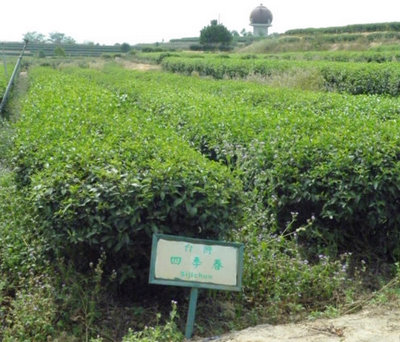
He was speaking on Oct 9, with Ms. Kathy Zhang -- MD of Singapore’s leading investor relations firm, Financial PR -- and JK Capital’s MD, Mr. Randy Kwei, who visited Tenfu’s Zhangzhou, Fujian facilities as well as the Tenfu Tea College and Tea Museum. They were accompanied by Tenfu’s IR Manager Tina Shi and Finance Manager Ms. Jin Hairong.
Mr. Zheng went on to say: “Our tea harvesting season is broken into four or five pickings – in spring, summer, fall, winter and sometimes a fifth harvest is managed in the hottest months.
Among these, spring and fall pickings generally produce the highest quality tea leaves. The tea fragrance in spring is more hearty and nutrient-rich, while also being both refreshing and cooling. Autumn harvest tea leaves are more mild and smooth to the taste.”
After tealeaves are picked, they are washed, rolled, dried and finally allowed to ferment.
“However, tea processing methods can differ quite drastically,” Ms. Jin added.
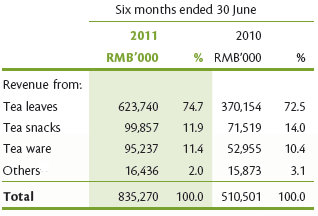
Tenfu meticulously organizes its product types and marketing strategies to specifically leverage upon the firm’s inherent strengths and target consumer demand for each regional market.
At present, Tenfu supplies 1,100 unique tealeaf products, over 160 accompanying foodstuffs and more than 2,690 types of tea drinking and tea preparing paraphernalia, collectively called “tea sets.”
Tenfu also operates a food processing plant used to make consumer edibles including processed cakes, pastries, cookies, biscuits, dried fruits and candies suitable to accompany tea consumption.
Tenfu was proud to offer a wide variety of these supplemental tea-related foodstuffs as participant gift packages during the 2005 APEC Summit in South Korea.
Due to the current production capacity limitations, Tenfu’s current output of the above-mentioned foodstuffs is only sufficient to satisfy demand within its extensive network of Tenfu-branded chainstores.
It is also worth mentioning that Tenfu is currently the only group of its kind that simultaneously engages in all the following activities: tea packaging, marketing, research, cultural dissemination, education and theme-based travel options.
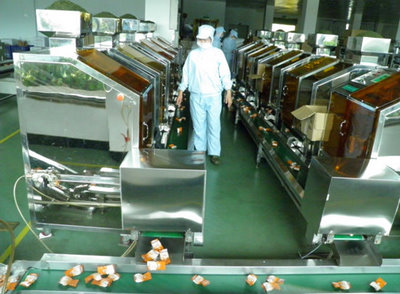
The company’s activities span three major sectors – agriculture, industry and the services sector.
The Tenfu Tea College was established via company-initiated investment and is the world’s first professional institution of higher learning specifically focused on the tea industry. It is often referred to as Tenfu’s ‘tea culture training base’,” Ms. Jin said.
She went on to explain: “The college sets the standard for the discipline in the country, and offers degrees after a period of three years, with departments including institutes of business, teas and foodstuffs technology, culture creativity, as well as four secondary institutes. At present Tenfu Tea College has over 2,000 active students.”
But Tenfu is not only about producing and selling tea and producing graduates proficient in the industry. It also has built the world’s largest museum dedicated to the craft: The Tenfu Tea Museum.
The Tenfu Tea Museum provides visitors with a detailed history of tea making and drinking, with extensive exhibits explaining the different types of leaves and growing regions and all things related to tea.
The museum was founded by Tenfu own founder, Mr. Li Ruihe, and thus holds an even more significant place in the history of fragrant leaves.
And the museum springs to life at designated times each day, with staffers demonstrating various regional teas around the globe and their specific preparation methodologies, including the ornate Japanese tea ceremony and the hot buttered tea unique to the Tibetan highlands.
Tenfu has at its avail dozens of experts ready to demonstrate or answer free of charge any questions the “tea tourists” might have on the museum grounds. And making the museum experience all the more authentic and memorable is the fact that the vast majority of staffers are themselves graduates of the nearby Tenfu Tea College.
After a tour of the musuem with an enhanced understanding of the art and industry under their belt, visitors are able to venture to a tea pavilion to purchase from an extensive menu of Tenfu teas and accompanying foods, including those that are brand-new to the marketplace.
About the Founder: Rebounding from a deep abyss
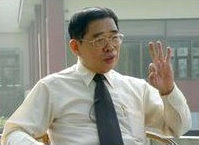
Mr. Li Ruihe, nicknamed the “Cross Strait’s Tea King,” is the 77-year old founder of Tenfu Tea.
Born in 1935 in Taiwan’s Nantou County -- the island’s only landlocked county which is dominated by highlands suitable for tea cultivation -- Mr. Li can trace his ancestry back to Zhangpu, Fujian.
He has since become a legend in the tea industry, eventually gaining the nickname: “Cross Strait’s Tea King.”
He began working with his father in the tea industry at the age of 17.
By 26, he had set up his own tea shop, and then went on to spend nearly four decades in Taiwan’s tea industry, expanding into tea production, teashop retailing, securities investment activities, tourism and other undertakings.
Eventually, Mr. Li began setting up tea chains overseas.
But in 1990, his career suffered a major challenge as the bottom suddenly fell out of the high-flying stock market in Taipei.
With the collapse of the Taiex and the fall of Tianren Securities, Mr. Li’s three decades of hard work and dedication almost came to naught.
In 1993, Mr. Li returned to his ancestral Zhangpu County in China’s Fujian Province to start afresh with his first love – the teamaking industry – and thus founded Tenfu Tea that very same year.
He was 59 years young at the time.
Mr. Li originally intended to spend a decade to open 100 Tenfu Tea chain shops, but surprised himself and his competitors by achieving the milestone in just five short years.
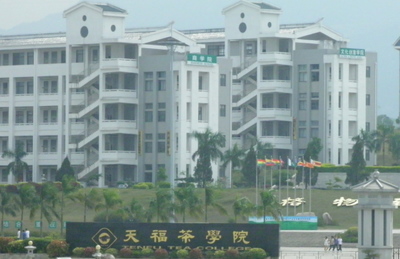
Since founding Tenfu Tea 18 years ago, the chain has grown to over 1,000 stores and just last month launched its IPO on the Hong Kong main board.
Mr. Li’s Tenfu Tea has clearly benefited from a long history of Chinese tea drinking tradition and culture, as well as rapidly rising disposable income among the country’s 1.3 billion inhabitants.
And everyone agrees that China’s tea industry will continue so display robust growth going forward.
Another piece in Euromonitor International said that Chinese-branded green tea and Oolong tea were the two most heavily consumed flavors in 2010, with total market shares of 66.5% and 13.4%, respectively.
Tea retail sales revenues rose from 28.44 billion yuan in the year 2000 to 93.78 billion yuan in 2010, representing an average annual growth of 12.7%. It is expected that from 2011 to 2013, this growth will average a still-robust 11.7% annual growth increase.
Among all types of tea, traditional Chinese-style teas grew at the fastest rate over recent years, growing at an average annual rate of 16.5% from 2000 to 2010 to 32.82 billion yuan.
It is forecast that by 2013, this will reach 49.94 billion yuan that year, an annual increase of 13.9% from 2011 to 2013.
Tenfu’s sales network covers all 29 of the country's provinces, as well as autonomous regions and municipalities. As of June 30, 2011, the company had 1,107 proprietary and third-party retail shops and stores, among which self-owned and operated venues stood at 469.
Tenfu’s primary products are teas, foodstuffs and tea sets, with the revenue breakdown in the first half of 2011 for the three categories standing at 623 million yuan, 99 million yuan and 95 million yuan, respectively.
In addition, revenue in the first half of 2011 from restaurants, hotels, tourism and management services totaled 16 million yuan.
Tenfu forecasts that over the next five years, it will add around 150 new shops each year.
See also: FOCUS MEDIA: Capturing Captive Audiences In Singapore, Hong Kong
天福:中国领先的传统中式茶产品企业
天福控股有限公司(06868.HK),中国领先的传统中式茶产品企业,于2011年9月26日在港交所主板成功上市。
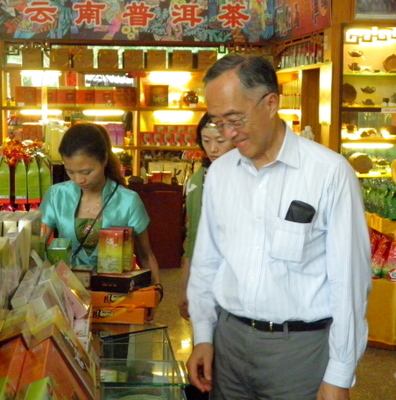
以2010年零售额计算,天福自有品牌的传统中式茶叶在中国所有品牌的传统中式茶叶中占有最大的市场份额,乌龙茶及绿茶在有关市场分部均独占鳌头。
根据独立第三方Euromonitor International 近期发表的报告称,“天福”品牌在中国茶产品消费者中拥有最高的品牌认知度。
公司采取多品牌的营销策略,以把握中国茶产品的各细分市场。
目前供应1100种茶叶、逾160种茶食品和超过2690种茶具。
2011年上半年茶叶、茶食品及茶具的收入分别为6.23亿、0.99亿和0.95亿人民币。
而公司的净利亦逐年稳步增长,08年、09年及11年分别为1.1亿、1.4亿和2.2亿元人民币,预计11年将达3亿元人民币。
天福的销售网络遍布全国29个省、自治区及直辖市。
截至2011年6月30日止,公司共拥有1107家自营及第三方零售门店及专卖店,其中自营店为469家。公司计划未来5年每年净增约150家零售门店及专卖店。
创始人“两岸茶王”李瑞河:59岁创办天福
李瑞河,台湾南投人,1935年出生于台湾南投县,祖籍福建漳浦。他的一生起伏传奇,被誉为“两岸茶王”。
他于17岁开始和父亲经营茶叶生意。26岁在台湾开设了自己的茶行。
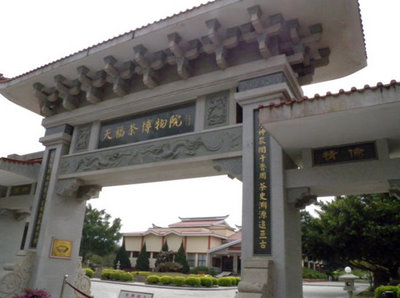
在台湾近四十年的经营,领域涉及制茶、连锁茶艺馆、证券投资、旅游等行业。
但在1990年,他的事业受到一次近乎致命的打击。
台湾股市崩盘,天仁证券陷入财务危机,他辛苦三十多年成就的事业毁于一旦。
1993年,李瑞河回到祖籍福建省漳浦县,重拾他最熟悉的茶叶生意,并创建天福茗茶,一切从头开始。是年,他59岁。
他原计划用十年的时间在中国大陆开设100家连锁店,想不到5年就达到了目标。
李瑞河不仅没被打败,反而登上了事业的另一个高峰。经过18年的经营,如今的天福已拥有1000多家连锁店,并在港交所主板成功上市。今年,他77岁高龄。
茶产品历史悠久,前景可观
2010年中国消费传统中式茶叶约1.1百万吨,相当于人均茶叶消费量0.85千克,仍远低于主要发达国家。
受益于悠久的中国饮茶传统和文化,中国广泛推广的饮茶传统和文化,国内居民可支配收入的快速增长,以及宏观经济因素的支持。中国的茶行业于未来数年内获得稳步增长。
根据Euromonitor International 的数据显示,茶叶零售额由2000年的284.4亿元人民币增长至2010年的937.8亿元,复合年增长率为12.7%,预计2011年至2013年的复合年增长率将达到11.7%。
其中品牌传统中式茶叶的零售额增长速度较快,同期年均复合增长率达16.5%至328.2亿元人民币,预计2013年将达499.4亿元,2011年至2013年的年均复合增长率将达13.9%。
市场空间十分巨大,相信未来天福在大陆市场会大有所为。
值得一提的是,天福是唯一一家集茶叶分级包装、销售、研发、文化、教育和旅游为一体的公司,涵盖农业、工业及服务业三大产业的茶产品企业。
集团不但经营茶生意,还推广茶文化,建造了世界上最大的茶博物馆――“天福茶博物馆”。天福茶学院是天福投资兴办的全球第一所茶专业高等院校,被誉为茶文化的“黄埔军校”。
请看: 宝峰:中国顶级拖鞋公司,上半年销售激增30%至近6亿元人民币


